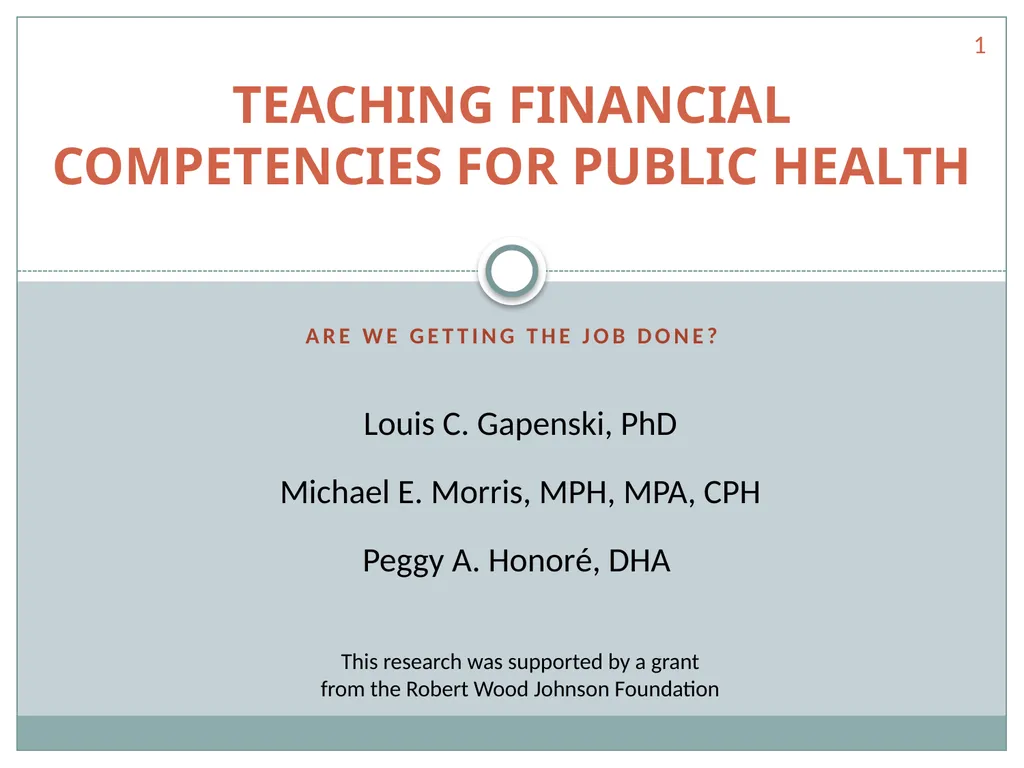
Author : conchita-marotz | Published Date : 2025-06-23
Description: Are we getting the job done? TEACHING FINANCIAL COMPETENCIES FOR PUBLIC HEALTH Louis C. Gapenski, PhD Michael E. Morris, MPH, MPA, CPH Peggy A. Honoré, DHA This research was supported by a grant from the Robert Wood Johnson Foundation 1Download Presentation The PPT/PDF document "" is the property of its rightful owner. Permission is granted to download and print the materials on this website for personal, non-commercial use only, and to display it on your personal computer provided you do not modify the materials and that you retain all copyright notices contained in the materials. By downloading content from our website, you accept the terms of this agreement.
Here is the link to download the presentation.
"Are we getting the job done? TEACHING FINANCIAL"The content belongs to its owner. You may download and print it for personal use, without modification, and keep all copyright notices. By downloading, you agree to these terms.







![[DOWNLOAD] - The HomeScholar Guide to College Admission and Scholarships: Homesch...](https://thumbs.docslides.com/902541/download-the-homescholar-guide-to-college-admission-and-scholarships-homeschool-secrets-to-getting-ready-getting-in-and-getting-paid.jpg)
![[DOWNLOAD] - Med School Rx: Getting In, Getting Through, and Getting On with Doct...](https://thumbs.docslides.com/902921/download-med-school-rx-getting-in-getting-through-and-getting-on-with-doctoring.jpg)
![[EPUB] - Getting Financial Aid 2013: All-new seventh edition (College Board Guide...](https://thumbs.docslides.com/905024/epub-getting-financial-aid-2013-all-new-seventh-edition-college-board-guide-to-getting-financial-aid.jpg)
![[EBOOK] - Getting Financial Aid 2011 (College Board Guide To Getting Financial Aid)](https://thumbs.docslides.com/905302/ebook-getting-financial-aid-2011-college-board-guide-to-getting-financial-aid.jpg)
![[EPUB] - Getting Financial Aid 2018 (College Board Guide to Getting Financial Aid)](https://thumbs.docslides.com/906280/epub-getting-financial-aid-2018-college-board-guide-to-getting-financial-aid.jpg)
![[EBOOK] - Med School Rx: Getting In, Getting Through, and Getting On with Doctoring](https://thumbs.docslides.com/906464/ebook-med-school-rx-getting-in-getting-through-and-getting-on-with-doctoring.jpg)
